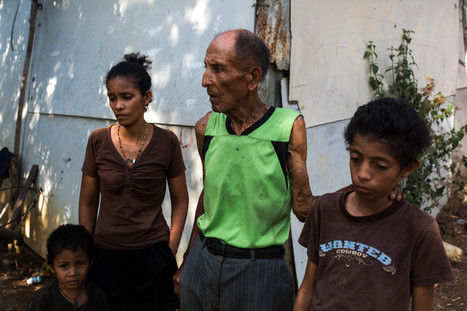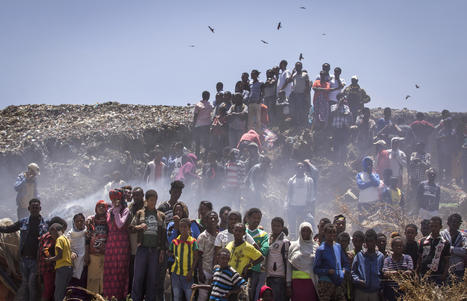Once Latin America’s richest country, Venezuela can no longer feed its people, hobbled by the nationalization of farms as well as price and currency controls. The resulting hunger and malnutrition are an unfolding tragedy.

|
Scooped by Yves Carmeille "Libre passeur" |

Zavier Lineberger's curator insight,
February 9, 2018 10:46 PM
(South America) It's depressing to see the dramatic turn of events in Venezuela's political and economic climate in recent decades, coming from the richest country in Latin America to the country with the world's highest inflation rates and number two on country murder rating. This causes increased levels of crime, stealing and looting food for families to survive. The Venezuelan government has refused foreign aid and yet cannot find a solution to fixing the lack of food, healthcare, and medicine. This problem affects several South American countries and always poses a threat of travelling across borders. We tend to think of the Western World as more enlightened yet just south of the US we find authoritarian countries with the highest crime rates in the world, starving its own people.
Katie Kershaw's curator insight,
February 15, 2018 2:05 PM
Sometimes the world seems like a really hopeless place and this article definetly supports that train of thought. Venezuela only a few years ago produced enough food to feed themselves and actually had enough surplus that they were able to export. What they couldn’t grow they would import. The food shortage that the country is facing is not an agriculture problem in the sense that the land is incapable of producing food or shipping routes have been compromised, but a problem with how the government started running the system. As one farmer said, “‘The system is created so you can’t win.’” The government took ownership of many large farms and fertilizer and feed production. Those groups have barely been producing anything and causes the entire agricultural community to suffer and Venezuelans to starve. Another problem that is making the situation in Venezuela even worse is that the economy collapsed and inflation is rampant. The value of currency is so low that people cannot even afford the scarce food available. There are few employment opportunities, making finances even more strained. But perhaps the most upsetting part is that children are literally starving to death and there is nothing hospitals can do to stop these deaths because they themselves do not have the resources. The combination of an economy in shambles and a botched agricultural system have left Venezuelans in turmoil with little government effort to help. The government is not only not providing help, but they are literally refusing aid from foreign governments who have offered. Geographically, Venezuela is located in an area with sufficient farm land and large reserves of oil, so they shouldn’t be struggling. But people have the ability to ruin or ignore what nature has provided them and that is why Venezuelans are withering away.
Stevie-Rae Wood's curator insight,
September 29, 2018 10:05 PM
Venezuela has so much potential to be such an affluent country however it is severely mismanaged. It seems when the political power was lifted Venezuelas economy went down the tubes. There’s no hope in city for these people because the people in office do not even want to acknowledge that there’s a lack of food crisis. It is so bad that many Venezuelans have lost twenty pounds in only a year. Some call it the Maduro diet. The situation of the lack of food is a big problem the biggest concern is how fast Venezuela got to into this dire crisis. Even the meat in Venezuela is losing weight. Pigs for example have lost close to 60-70 Ibs with the food humans are suppose to be consuming losing weight. How can there be enough food to feed this crisis.
Sign up to comment



 Your new post is loading...
Your new post is loading...







